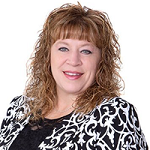by Lisa Fordyce, OnShift

It’s been said so many times, but the impact the novel coronavirus has had on nearly every aspect of our lives is truly remarkable. However, for direct-care staff and DSPs, COVID-19 has in many ways meant “business as usual”—when really, business is anything but usual.
For I/DD providers and their staff, COVID-19 has meant a long list of new policies and procedures, all with one common goal—keeping both staff and clients safe and healthy. It’s meant struggling to properly secure essential care items such as disinfectants, hand sanitizer and PPE. And it’s also meant having to rethink the way DSPs and other staff interact with the clients they serve in our residential I/DD communities.
As staff have called off due to illness or left their positions for fear of contracting the virus themselves, many direct-care workers and DSPs have been asked to take on additional duties and shifts. In our customer data alone, we’ve seen a 50% increase in call-offs, as well as a 12% increase in overtime.
Many employees are also feeling the financial effects of COVID-19. In a recent survey conducted by PayActiv, nearly 58% of employees surveyed said they have seen and increase in expenses. And nearly 82% cited loss of income as their greatest concern during this crisis.
In response, many providers we work with implemented financial wellness software, such as OnShift Wallet, which allows employees to access earned, but unpaid wages between paychecks. In turn, staff are able to avoid things like costly overdraft fees, late fees and high interest payday loans.
Providers are also re-examining the perks and benefits they offer their staff. Some health care providers, including those in I/DD, have implemented hero pay or one-time bonuses. Others have begun to provide free meals from their residential kitchens, set up staff pantries filled with essential goods such as toilet paper, paper towels and cleaning supplies. One provider we work with even set up an in-house daycare where staff took turns caring for children so their parents could continue working.
Many agencies are also working to provide more flexible scheduling to their staff members—implementing things like shorter shift times of 4 or 6 hours to help not only maximize the utilization of their staff, but help their employees better balance their responsibilities at home.
But one of the most positive things to come out of this experience so far is the way providers are communicating with their staff.
Our customer data shows a 28% increase in the number of messages sent through our communication platform in OnShift Schedule, providing updates on everything from open shifts, PPE, PTO and sick leave policies, safety practices and industry regulation changes. One organization has even been sending video messages from their president to staff on a regular basis, keeping everyone informed and providing words of appreciation and thanks for all they do.
As a result of COVID-19, more providers are asking their staff how they feel and where they need help. At the onset of the pandemic, we saw a 300% increase in the number of surveys sent to staff via our employee engagement software, OnShift Engage.
Many of these messages were used to consistently measure staff sentiment. Others were used to ask more specific questions, such as “Do you feel safe coming to work?” or “Do you feel you have a clear understanding of the recent policy changes?” or “Are you having childcare issues?”
And staff are eager to answer back, with many leaving feedback such as their fears around COVID-19 or their appreciation for the regular updates their organizations are providing.
COVID-19 is anticipated, according to some experts, to be a part of our lives for up to the next two years. And many organizations are focused on settling in to their next normal. However, it’s important to keep in mind the many positive changes that have come out of this crisis in terms of the relationships we have with our staff.
Flexible scheduling, consistent and timely communication, regularly feedback and input from staff—these have been an expectation of our workforce for years. And they will be essential as we continue to support our staff not just today and tomorrow but into the future.
Thank you to everything you’ve been doing to support your staff and your clients during this time. You are truly amazing!
If you’re interested in learning more about how OnShift is helping to support residential I/DD organizations like yours during this crisis and beyond, visit OnShift.com.
Lisa Fordyce is the Executive Vice President of Enterprise Development for Senior Living at OnShift. Having started her career as a caregiver and expanding into operations leadership, Lisa has held senior executive operations positions at national health care organizations, leading overall business strategies and day-to-day operations to deliver quality resident care and services. Prior to joining OnShift, Lisa was Chief Operating Officer at Senior Lifestyle Corporation, leading the overall operational strategies.
